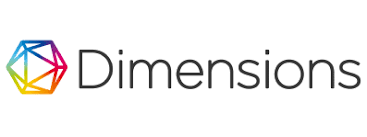Hubungan Kepribadian Proaktif Dengan Perilaku Kerja Inovatif Pada Generasi Millenial
Abstract
Keywords
Full Text:
PDFReferences
Windiarsih, R & Etikariena, A. (2017).
Hubungan antara kepribadian proaktif
dan perilaku kerja inovatif di BUMN X. Jurnal Psikogenesis, Volume 5, No.2, Desember 2017.
Bateman, T. S., & Crant, J. M. (1993). The proactive component of organizational behavior: A measure and correlates. Journal of organizational behavior,
(2), 103-118.
Janssen, O. (2000). Job demands, perceptions
of effort‐reward fairness and innovative work behaviour. Journal of Occupational and organizational psychology, 73(3), 287-302.
Jones, B. (2012). Innovation and human resources: Migration policies and employment protection policies. NESTA: Compendium of Evidence on the Effectiveness of Innovation Policy Intervention. Manchester, Manchester Institute of Innovation Research, University of Manchester
Liu, Z., Ge, L., & Peng, W. (2016). How organizational tenure affects innovative behavior? The role of culture difference and status determinants. Nankai Business Review
International, 7(1), 99-126.
Patterson, F., Kerrin, M., & Gatto-Roissard, G. (2009). Characteristics and behaviours of innovative people in organisations. Literature Review prepared for the NESTA Policy & Research Unit, 1-63
Scott, S. G., & Bruce, R. A. (1994).
Determinants of innovative behavior:
A path model of individual innovation in the workplace. Academy of management journal, 37(3), 580-607.
Abbas, M and Raja, U. (2015). Impact of Psychological Capital on Innovative Performance and Job Stress. Canadian Journal of Administrative Science, Publish online in Wiley Online Library (wileyonlinelibrary.com) DOI:
1002/CJAS/1314
Agarwal, U.A. (2013). Examining the Impact of Social Exchange Relationships on Innovative Work Behaviour Role of Work Engagement. Team Performance Management, Vol.20 Iss3 ¾ pp.102-
http://dx.doi.org/10.1108/TPM-
-2013-0004
BPS. (2018). Profil Generasi Milenial Indonesia. Jakarta: Kementrian Pemberdayaan Perempuan dan Perlindungan Anak.
Bakker, A.B, and Demerouti, E. (2007). The Job Demand-Resources Model: State of The Art. Journal of Managerial Psychology Vol.22 No.3, 2007, pp.309-
DOI 10.1108/0268394071072215
DuBrin, A. J. (2012). Proactive personality and behavior for individual and organizational productivity. Northamptom: Edward Elgar.
Gunadi, S. (2018). Mengenal 10 ciri generasi millennial.
http://kompasiana.com/mengenal_10_
ciri_generasi_millenial.
Linley, P, Harrington, S & Garcea, N. (2013).
The Oxford Handbook of Positive
Psychology and Work. United States of
America: Oxford University Press.
Sameer, Y.M and Ohly, S. (2017). Innovative behavior of employees: a model of antecendents and consequences, a deeper look at psychological and organizational factors. Faculty of management technology Germany University in Cairo, Working paper no.5 June 2017.
Papalia, D. E, Olds, S.W & Feldman, R. D. (2009). Human Development Pekembangan Manusia. Edisi 10 Buku 1. Jakarta: Salemba Humanika
Article Metrics
Abstract has been read : 1513 timesPDF file viewed/downloaded: 0 times
DOI: http://doi.org/10.25273/equilibrium.v8i2.7117
Refbacks
- There are currently no refbacks.

This work is licensed under a Creative Commons Attribution-ShareAlike 4.0 International License.












